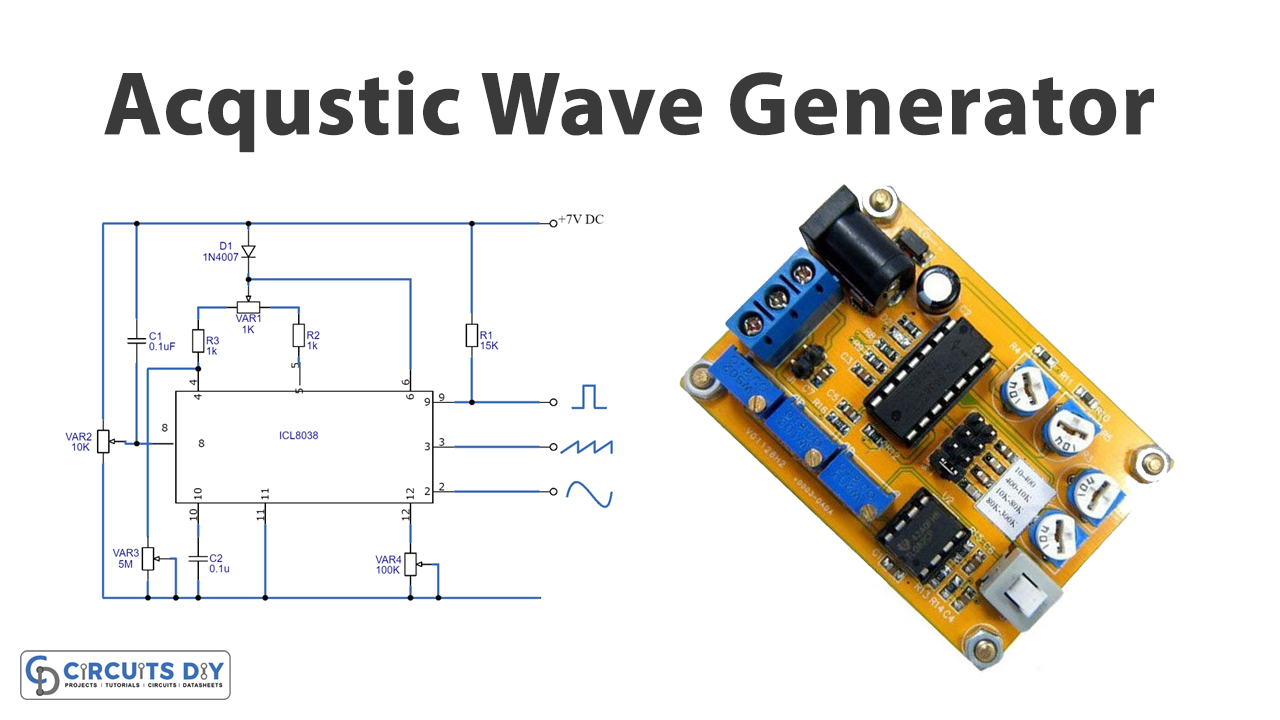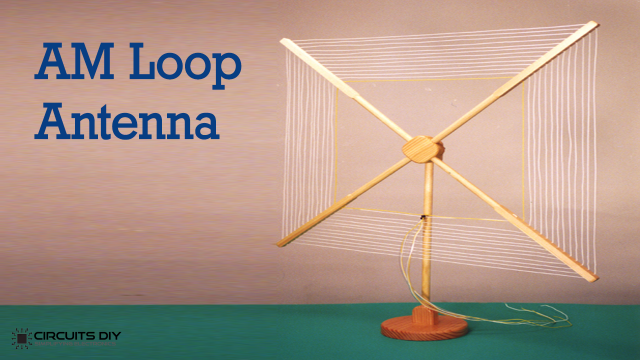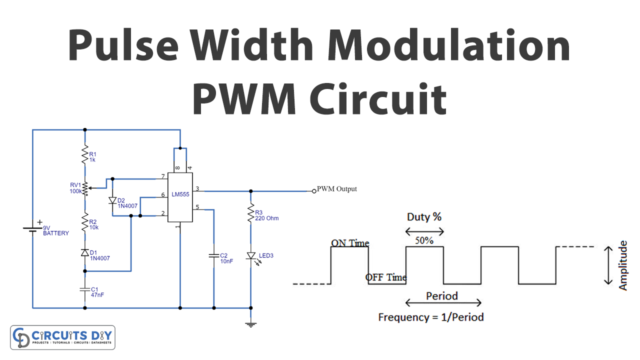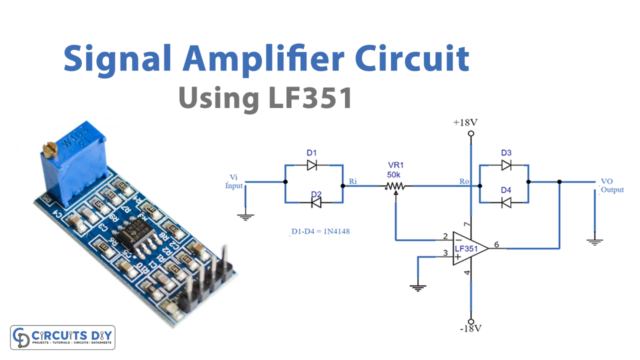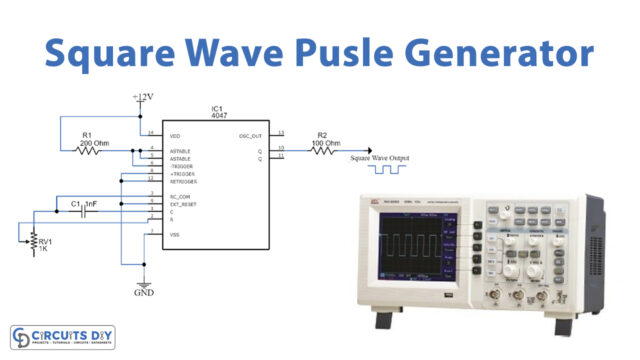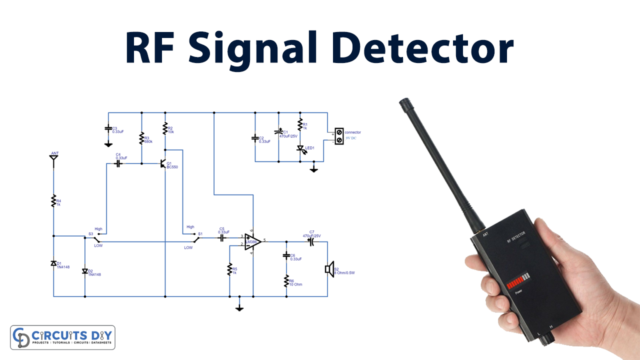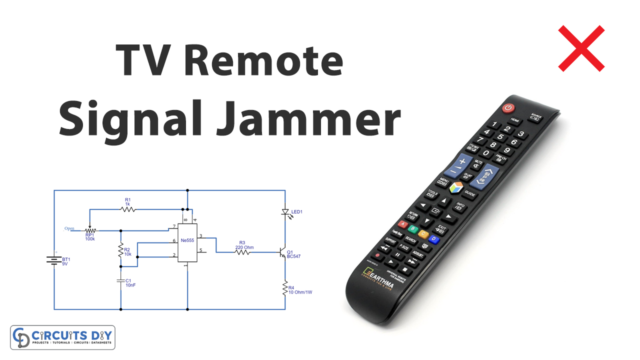Introduction
Signal or wave generators are some of the most important elements of electronics and communication technologies. It’s used to generate a range of signals and frequencies for several applications, including testing, debugging, and design. One of those waves includes acoustic waves. An acoustic wave is a longitudinal wave produced by vibration from any cause. For example, Sound Waves are acoustic waves that can be detected by an ordinary human ear. Thus, In this tutorial, we are going to make an “Acoustic-wave generator”
In the making of the circuit, we are using ICL8038. The ICL8038 is a function generator IC that produces three different waveforms: sine, square, and triangle. The IC also allows you to tweak the waveform’s critical properties like the duty cycle. and frequency External elements like resistors and capacitors can change the signal’s frequency

Hardware Components
The following components are required to make Acoustic Wave Generator Circuit
| S.no | Component | Value | Qty |
|---|---|---|---|
| 1. | Function Generator IC | ICL8038 | 1 |
| 2. | Diode | 1N4001 | 1 |
| 3. | Variable Resistor | 1K, 10K, 100K, 5M | 1, 1, 1, 1 |
| 4. | Ceramic Capacitor | 0.1uF, 4.7nF | 1, 1 |
| 5. | Resistor | 4.7K, 20K, 15K | 2, 1, 1 |
ICL8038 Pinout
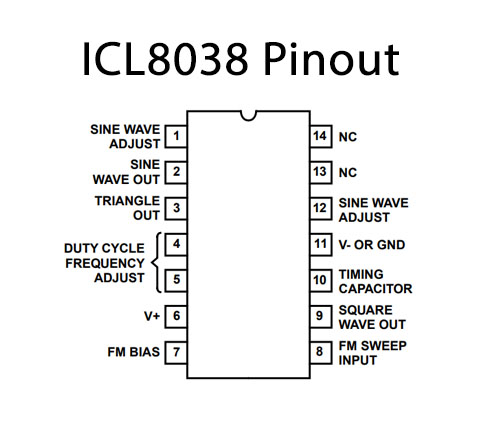
For a detailed description of pinout, dimension features, and specifications download the datasheet of ICL8038
Acoustic Wave Generator Circuit
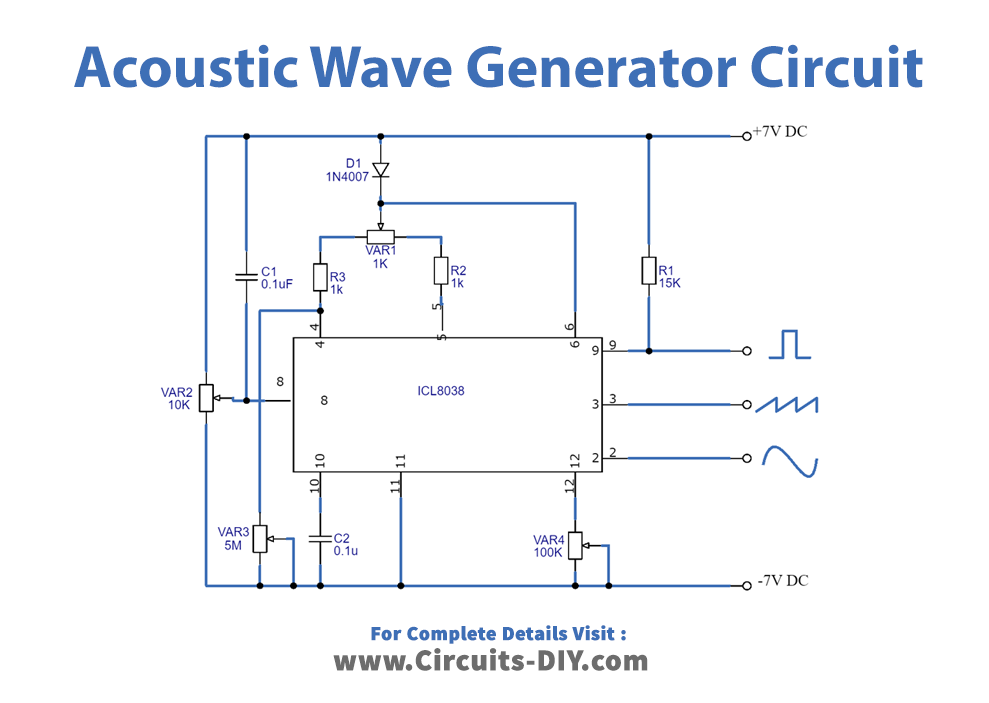
Working Explanation
Along with the IC, the circuit contains a few fundamental components that affect the frequency output: potentiometers, resistors, and capacitors. Starting at D1, resistors (in positions 4 and 5) are the control output of a signal with an asymmetric or 50% duty cycle. The required frequency is selected using a 10k potentiometer. Different output waves like square, triangle, and sin wave, are received at pin 9, 3, and 2 respectively
Application and Uses
- To generate sin, triangle, and square waves to use in electronic circuits or devices.


